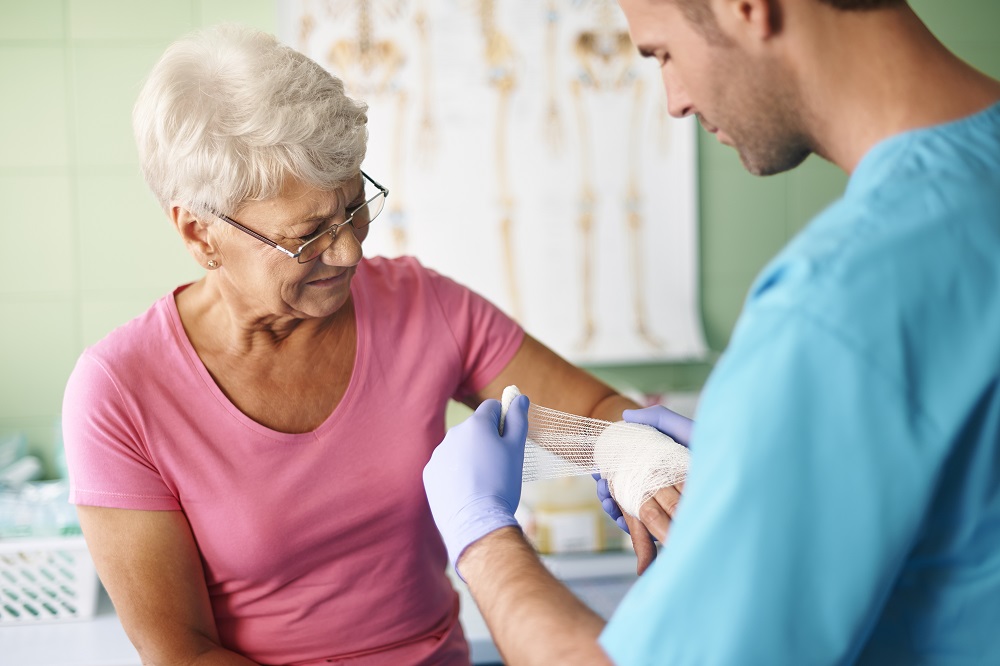
Post-surgical wound care is crucial for elderly patients, as their recovery process can be slower and more prone to complications due to age-related factors. Understanding how to properly care for wounds can significantly enhance healing, reduce risks, and ensure better overall outcomes. Here are practical and effective tips for managing post-surgical wounds in elderly individuals.
1. Follow Medical Advice Diligently
The surgeon or healthcare provider’s instructions should always be the primary guide. These directives are tailored to the specific surgery and individual needs of the patient. Ensure that prescribed medications, such as antibiotics or pain relievers, are taken as directed to prevent infections and manage discomfort. According to Bardia Anvar, an expert in wound care, following the healthcare provider’s instructions is crucial to prevent complications and ensure proper healing.
2. Keep the Wound Clean and Dry
Proper hygiene is essential to prevent infections. Always wash your hands before touching the wound or changing dressings. Use clean, sterile materials for wound care. Avoid submerging the wound in water; instead, use gentle cleaning methods approved by the healthcare provider, such as patting with a damp, sterile cloth. Make sure the wound stays dry after cleaning.
3. Inspect the Wound Regularly
Caregivers should check the wound daily for signs of infection, such as redness, swelling, warmth, or unusual discharge. For elderly patients, identifying these symptoms early is critical since infections can escalate quickly. Contact a healthcare professional immediately if any signs of complications arise.
4. Choose the Right Dressing
The type of dressing used depends on the wound’s size, depth, and healing stage. Modern wound dressings, such as hydrocolloids or foam dressings, help maintain a moist environment conducive to healing. For elderly skin, which is often more fragile, opt for gentle adhesive options to avoid irritation or damage during dressing changes.
5. Promote Circulation
Proper blood circulation is essential for wound healing. Encourage light movement and exercises, as advised by the doctor, to stimulate blood flow. For bedridden patients, frequent repositioning helps prevent pressure ulcers around the wound site and enhances overall recovery.
6. Ensure Proper Nutrition
Nutrition plays a vital role in wound healing. Elderly individuals should consume a balanced diet rich in proteins, vitamins (especially Vitamin C and Vitamin A), and minerals like zinc. These nutrients support tissue repair and strengthen the immune system. If dietary restrictions exist, consult a dietitian for tailored meal plans.
7. Manage Underlying Health Conditions
Chronic conditions such as diabetes or vascular diseases can hinder wound healing. Regularly monitor blood sugar levels and manage other pre-existing conditions effectively to support the recovery process. Adherence to treatment plans for these conditions is essential for preventing complications.
8. Minimize Strain on the Wound
Avoid putting pressure on or stretching the wound site. For example, if the surgery involved the abdomen, ensure the patient avoids heavy lifting or abrupt movements. Use supportive aids, such as cushions or braces, if recommended by the healthcare provider.
9. Encourage Rest and Patience
Healing takes time, especially for elderly patients. Ensure they get adequate rest and avoid overexertion. Rest is a key component of the recovery process, allowing the body to focus on healing.
Caring for post-surgical wounds in the elderly requires a thoughtful approach. Proper wound care not only promotes healing but also enhances the overall quality of life for elderly patients during their recuperation journey.


Call Now:
Follow Us: